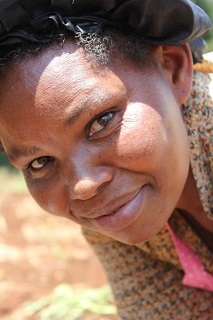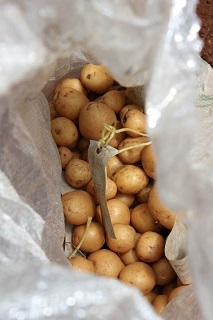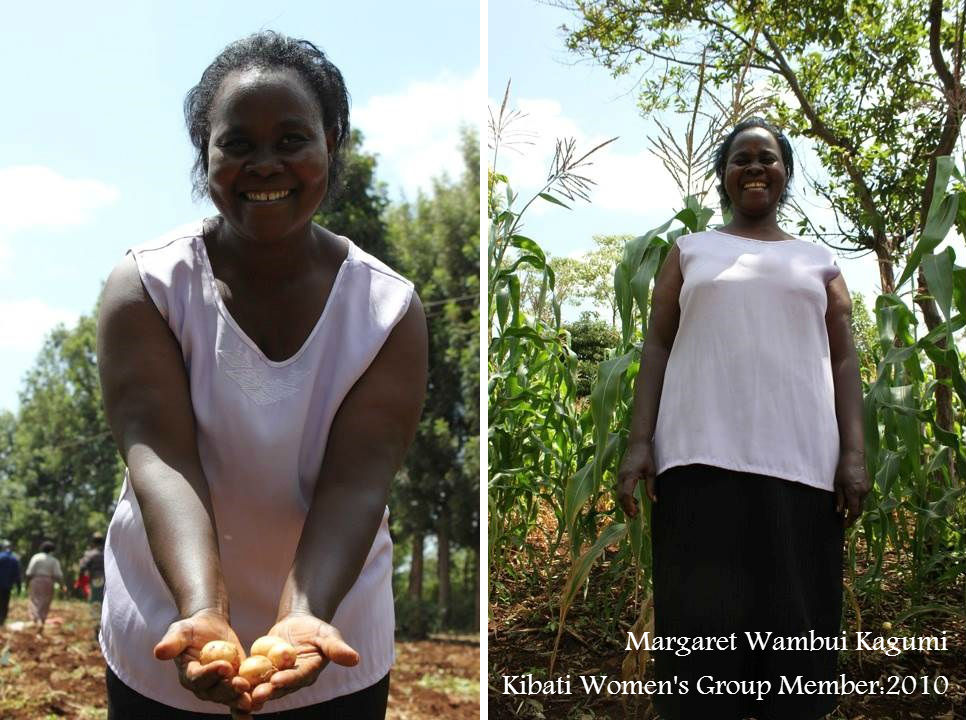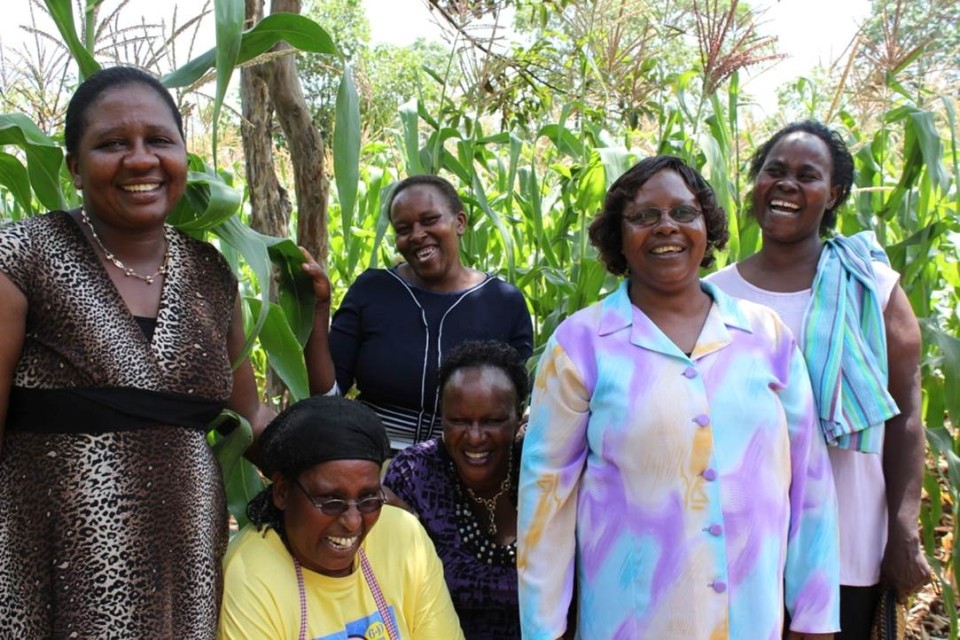 CIP recently partnered with a small women’s collective working in Kirinyaga County near Mt Kenya. All of the Kibati Women’s Group members plant potatoes, maize, beans bananas and assorted vegetable on small scale farms. The women work together in a collective supporting each other, combining their skills, pooling funds and working to minimize risk. |
 The majority of the women in the Kibati collective have small household farms where they farm a range of livestock and agriculture. The women are venturing into potato farming as a new opportunity for the collective. As the second most important crop in Kenya for food security and rural prosperity, potato presents great potential for this group. |
 The group approached CIP and requested for partnership to conduct on- farm research on potatoes and seed potato bulking. “Highland farmers have few choices for cash crops other than potato. Potato is the key food security and cash crop for smallholder farmers of the highlands, where the crop thrives. In potato-producing regions, annual consumption often surpasses 100 kg per person.” Monica Parker, Deputy Potato Lead at CIP Sub Saharan Africa. |
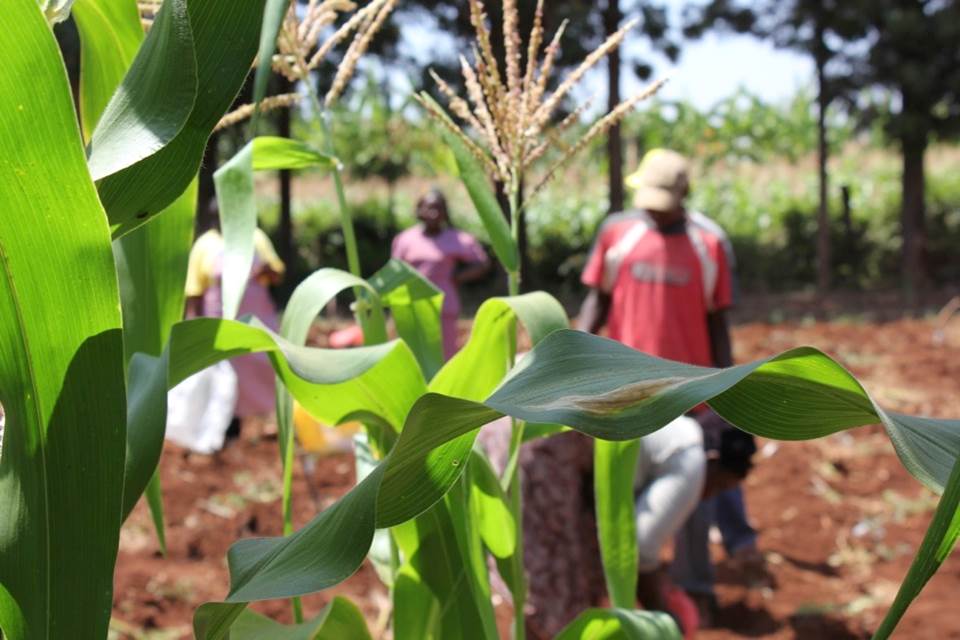 The project is evaluating heat tolerant potato clones, fertilizer, and late blight management. CIP hopes to assist the women to overcome challenges to potato farming including a lack of clean potato planting materials, soil fertility, and disease and pest management through training and education. Harvestable tubers are available 60 days after the onset of the rainy season—a significant advantage over grains, which require six to nine months. This makes potato one of the first crops that can be harvested in a given growing season making it an important crop for the “hunger months”. |
 CIP has set up four experimental sites within the group members farms. On each farm potatoes will be planted, cared for and harvested and will provide opportunities for the women to be trained in all aspects of potato production and nutrition. Potato is a cheap but nutritionally rich staple food for the fast growing cities of SSA, contributing protein, vitamin C, zinc, and iron to the diet. |
To begin the journey, the women have planted potatoes on small portions of land (approximately 0.1 of an acre) and have utilized planting materials from the small wares potatoes which are available on the market. Since 2013 CIP staff have been providing guidance and expertise to the group for their first round of planting and harvesting and have committed to training the group members on potato seed production, processing and the general good farming of potatoes. |
|
Post-harvest bags of potato are collected, counted, weighed and tagged to ensure that the project can be reviewed and improved for future harvests. There are plans for joint evaluation of these clones during active vegetative growth as well as harvesting time. |
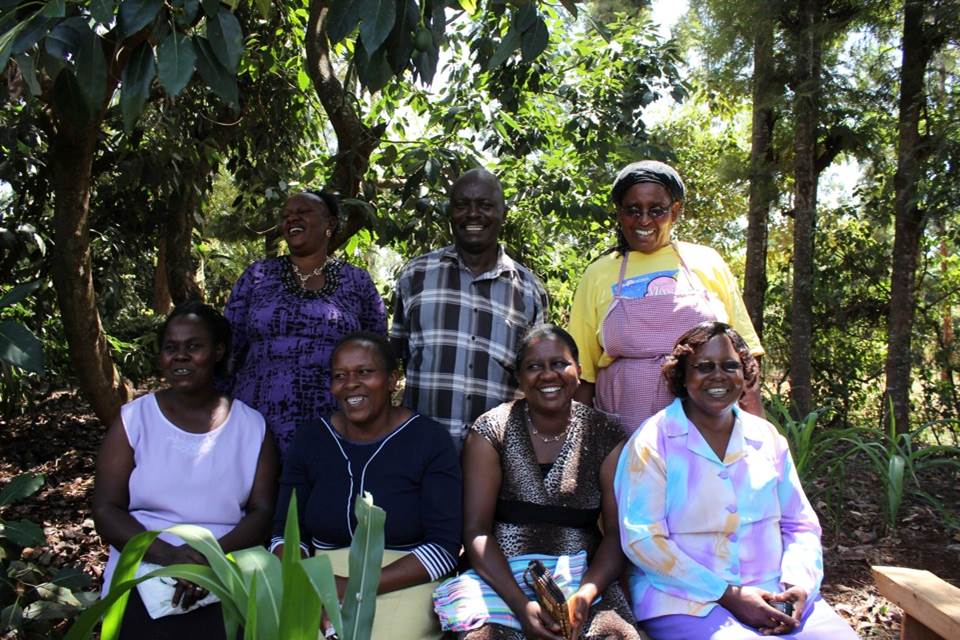 The members of Kibati celebrate with Daniel Mbiri (Research Associate, CIP) at the end of a long day of harvesting potato. Daniel Mbiri (CIP) believes that projects like this are important for the future of potato farming in Kenya and across Sub Saharan Africa. “Teaching small holder farmers about potato farming is crucial to ensuring food security in rural Kenya. These women are the new face of small scale potato farming which will be lifeline of farming in countries like Kenya in the future”. |
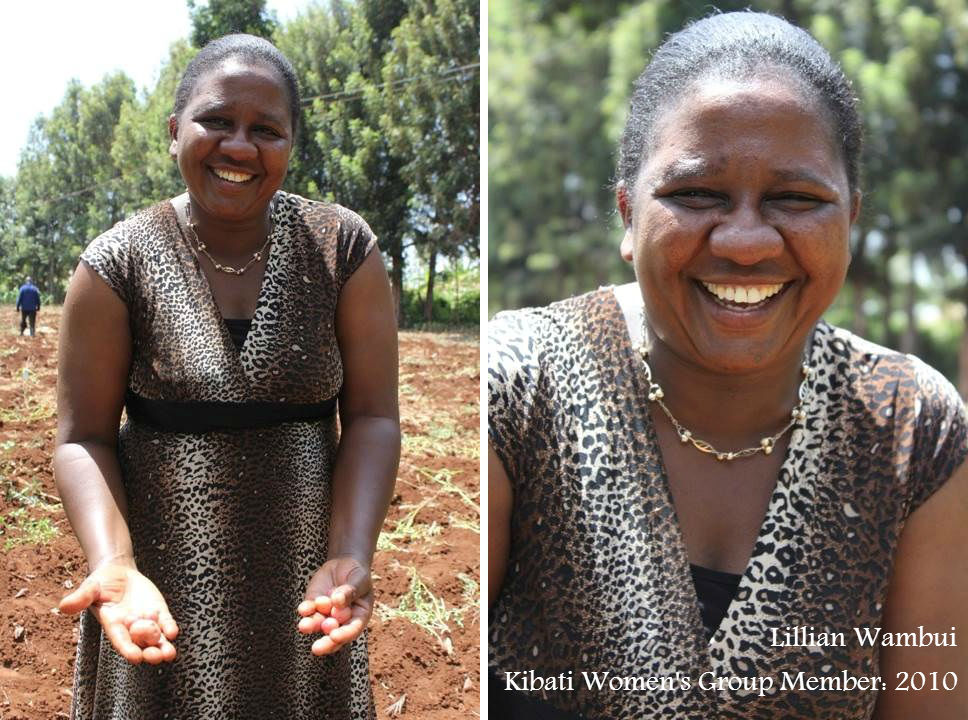 Lillian is a vivacious woman with a powerful smile. She loves being a part of the group and sees its rewards both monetarily and also in terms of relationships and support and enjoys the camaraderie between the women. Lillian has purchased poultry and farm supplies with money made via Kibati business ventures. |
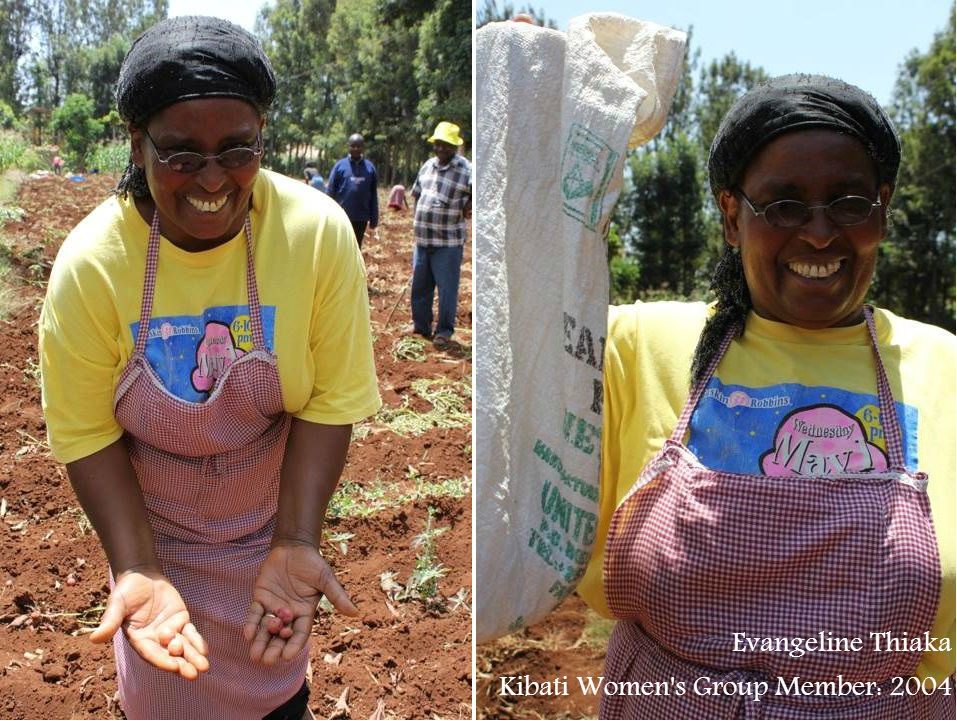 Evangeline is an enthusiastic member of the group. She is proud of the women’s accomplishments and gets great satisfaction form working hand in hand with other women from the local area. Being a part of the women’s group has given Evangeline the confidence to launch new small business opportunities and a great sense of friendship and support. |
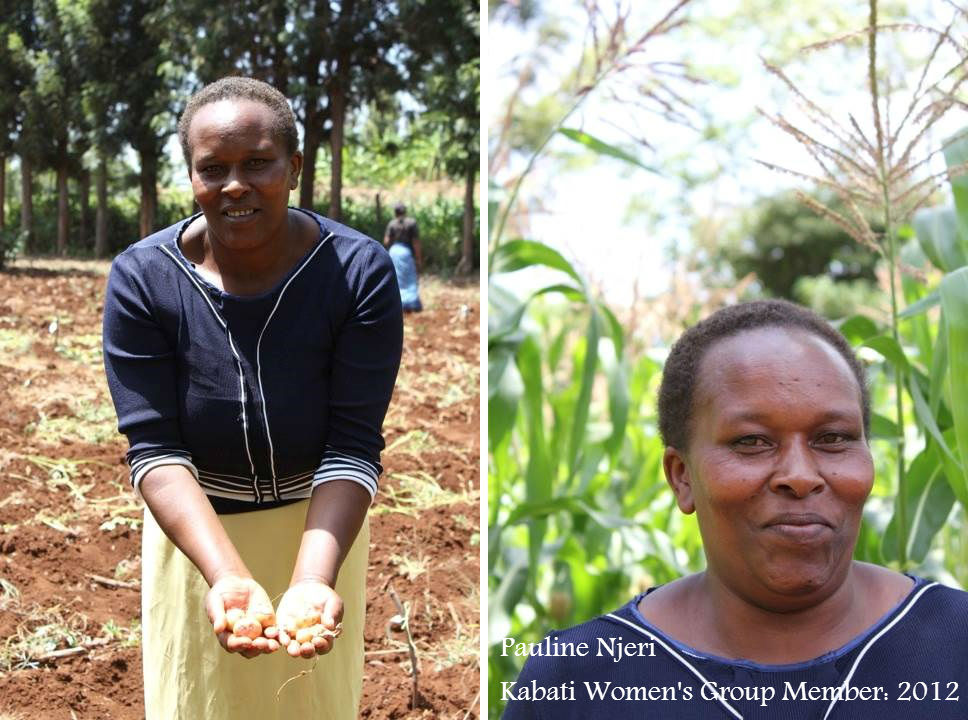 Pauline is passionate about her family, community and the Kibati Women’s Group. She feels proud to be a member and greatly values the strong support network that is provided by Kibati and the opportunity to make strong friendships and community ties through the collective. |
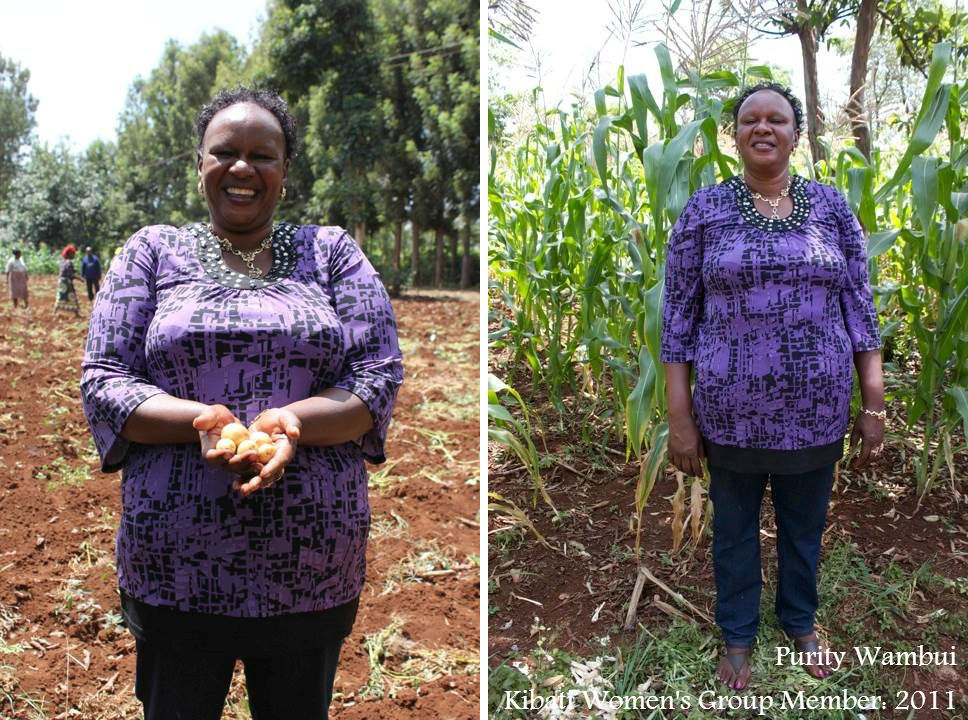 Purity is another passionate and enthusiastic member of the group. Purity sells clothing to help support her family and is excitedly venturing into the world of potato farming with the women of Kibati. |
|
Margaret is passionate about farming. She runs a mixed household farm and supports the Kibati Womens Group to develop and grow its farm based activities. Margaret prioritizes the purchase of new equipment and seeds for the farm with money that she makes with the Kitabi business ventures. |
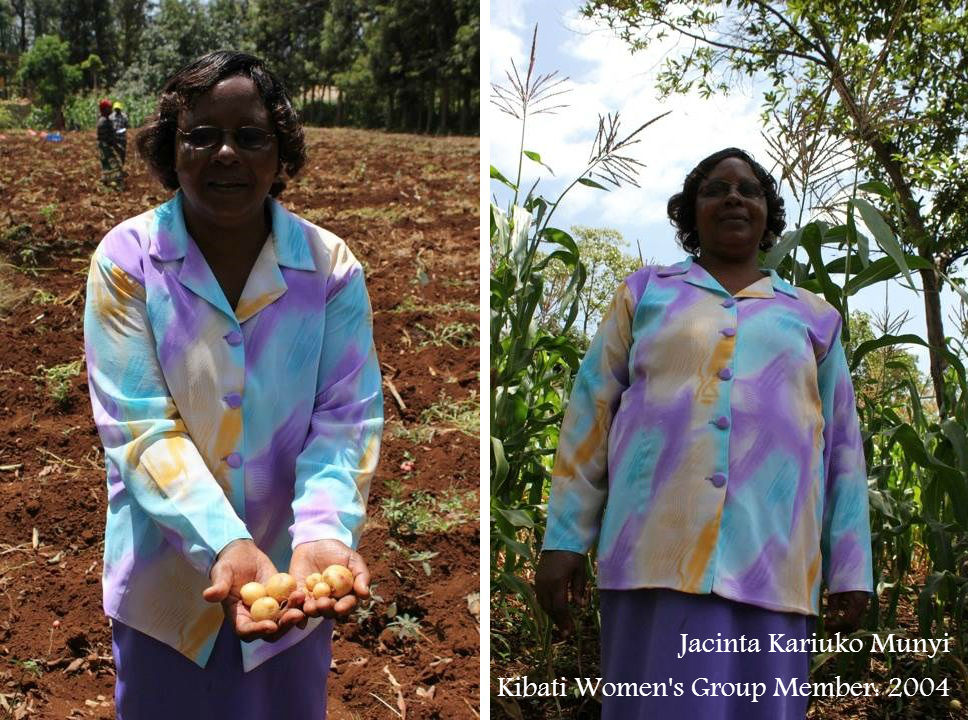 Jacinta is one of the longest serving members of the Kibati Women’s Group. Dedicated to the group, Jacinta gets great satisfaction from the strong relationships and friendships that she forms through the collective. Jacinta purchases supplies for her farm and home through the money she makes from the Kibati business ventures. |
This project is being funded by the Syngenta Foundation for Sustainable Agriculture

